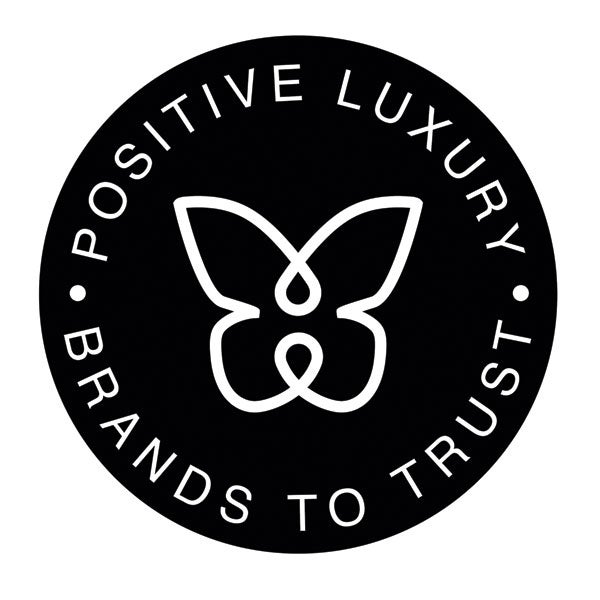

Notions of luxury change all the time. Within living memory luxury was a relatively simple matter. It stood for things that most of us now have no trouble accessing every day — cashmere, smoked salmon, fillet steak, central heating, to name but a few.
Nobody in those now-vanished days worried too much about provenance or ethics, or whether too many of the earth’s scarce resources were being used, or what contribution they were making to keeping alive endangered artisanal skills. No, what mattered when it came to luxury was that it was hotly desirable, very expensive, very exclusive and beyond the reach of hoi polloi.
These days that’s not enough. The sophisticated consumer asks a whole lot more. They want to feel good about buying and owning some of the world’s most gorgeous things. (It was Alannah Weston, then creative director of Selfridge’s, who once told me that she thought that up-to-speed retailers had a duty to ‘help the customer to be good’.) Today’s luxury consumers want to assuage their guilt about paying these prices.
They want to know that buying something lovely isn’t merely a self-indulgent gesture but makes the world a better place (apart from anything else, that means they can go on doing it). And so they want to know that workers are being paid proper wages, animals aren’t being maltreated and the environment isn’t being desecrated. Savvy retailers and manufacturers have cottoned on to this and there isn’t a luxury company of any size in the world that doesn’t have its ethics and sustainability committees and protocols.
But how, wondered Diana Verde Nieto, then running an international sustainability consultancy called Clownfish, could the average buyer have any idea which of these companies, if any, truly complied with all their high ethical words? The answer, of course, is that they couldn’t. They had no option but to take companies at their word — the solitary consumer wandering round a luxury store had no means of telling the conscientious ones from the bad. Which is how she came to start Positive Luxury, a company dedicated to rewarding luxury lifestyle brands that are committed to the holy trinity: craftsmanship, services and sustainability.

Diana Verde Nieto
Through her work at Clownfish, Verde Nieto had become ‘fascinated by the idea that businesses could be a force for good and change society for the better. Consumers have so much power — there are, after all, some 2.5 billion wealthy ones in the world, and imagine if they collectively refused to have anything to do with those that followed bad practice. It would completely alter companies’ behaviour. If you can change the luxury consumer, they in turn can change the world.’ She’d noted, too, that young people were looking for a different kind of luxury — ‘one that is inclusive, not exclusive, one that is good for them and good for others’.
Fired up with a mission to help companies commit to more ethical standards and a desire to make it easier for the consumer to know what was really going on, she took herself off to Harvard (self-financed) to study public policy. And then, four years ago, she started Positive Luxury. She developed an award, a trust mark, which the companies Positive Luxury has assessed and approved of can carry, both in a shop or online.
‘It allows brands to differentiate themselves at the point of sale and enables the consumer to trust the company bearing the mark,’ says Verde Nieto. ‘In addition, they can click on the button which then explains what the brand does in terms of social good and environmental responsibility.’ In other words, as she puts it, in an instant ‘it offers a short-cut to consumers to know that somebody really has done the groundwork and checked everything out and they can trust the brand.’
So far around 200 brands have earned the trust button, and from 1 September Selfridge’s online will carry it too, for Kiehl’s beauty range. The sectors range far and wide — from beauty companies (Dr Hauschka has also been approved) to alcohol (Belvedere Vodka), restaurants (Tom Aikens, the Drake & Morgan chain), fashion (Louis Vuitton, Balenciaga, Maiyet, the Age of Reason and Lily Cole’s Not Impossible range), food (Rococo chocolates – pictured top) and diamonds (De Beers). Check the Positive Luxury website and there are all the approved brands and the stories that lie behind them. Brands are charged a fee in relation to their turnover, and in return they can put the trust button (below) on their websites and on all their marketing material.

To earn the trust mark isn’t easy. First the company is asked to provide Positive Luxury with details of the brief they give to their suppliers. In the beauty industry in particular, animal welfare and how water resources are used are key issues. Problems over products emerging from conflict areas (the gathering of diamonds in particular) are another very contentious issue. All these are carefully looked into — no matter how grand the company, its word alone isn’t enough.
Proof is required. When assessing De Beers, Verde Nieto herself went personally to the mines, where she checked the whole process from the original sourcing to the emissions, the supply chain, the schools, the health and welfare of the workers and the communities around them. For those that are found lacking or those that really want to step up to the plate, Positive Luxury offers all sorts of strategic advice, ‘Some 30 per cent of our work is done consulting with companies that want to improve their record,’ she says.
Verde Nieto is honest that while they do a great deal of research and investigation, ‘Do I know 100 per cent what every company is up to? No, of course not — but we do take immense care to look under the bonnet. We look at the conversations that are happening online, we look at governance, environment, the effect on the community, the supply chains, philanthropic contributions.’
She has also been at pains to get on to her board as advisers people with real experience of ethics and sustainability, including Jonathon Porritt and John Elkington, who first coined the phrase ‘triple bottom line’ (applied to companies that report not just on economic performance but also on the social and environmental impact).
So far the company is small, but it is clearly the way luxury will have to head in future. Society — the young in particular, as Verde Nieto notes — are demanding it. And a nobler, finer form of luxury, one that makes the world a better place, now begins to seem a whole lot more desirable than any other sort.
Stylishly ethical brands
ZV2 has done some lateral thinking, stripped out the complexity from male grooming and come up with two serums, one for day, one for night (white and black bottles respectively, to avoid confusion in the bleary-eyed small hours). They are spritzed straight on to the face and you’re good to go. They’re packed full of hi-tech active ingredients that are designed to do everything from exfoliating and calming to protecting and moisturising. £52 each from Fortnum & Mason or ZV2.co.uk
Bamford Grooming Department, founded by George and Carole Bamford, also believes in keeping the range of products to a manageable level, though in their case they have come up with five: shampoo (£25), hydrating hand and body wash (£25), shaving oil (£30), exfoliating face wash (£25) and a moisturiser (£50). Their special appeal is their feel and smell – delicious textures, divine scents. bamford.co.uk
For those seduced by lovely papers and beautifully bound notebooks, Inhedited is the name to watch. They use super-fine paper, the pages have gilded edges (done by the only suitable atelier in London), there are marbled end papers and a gilded clasp. These are über-luxe journals for putting down your most poetic thoughts or for serious travellers penning their way round the world. From £248 to £448. inhedited.com






